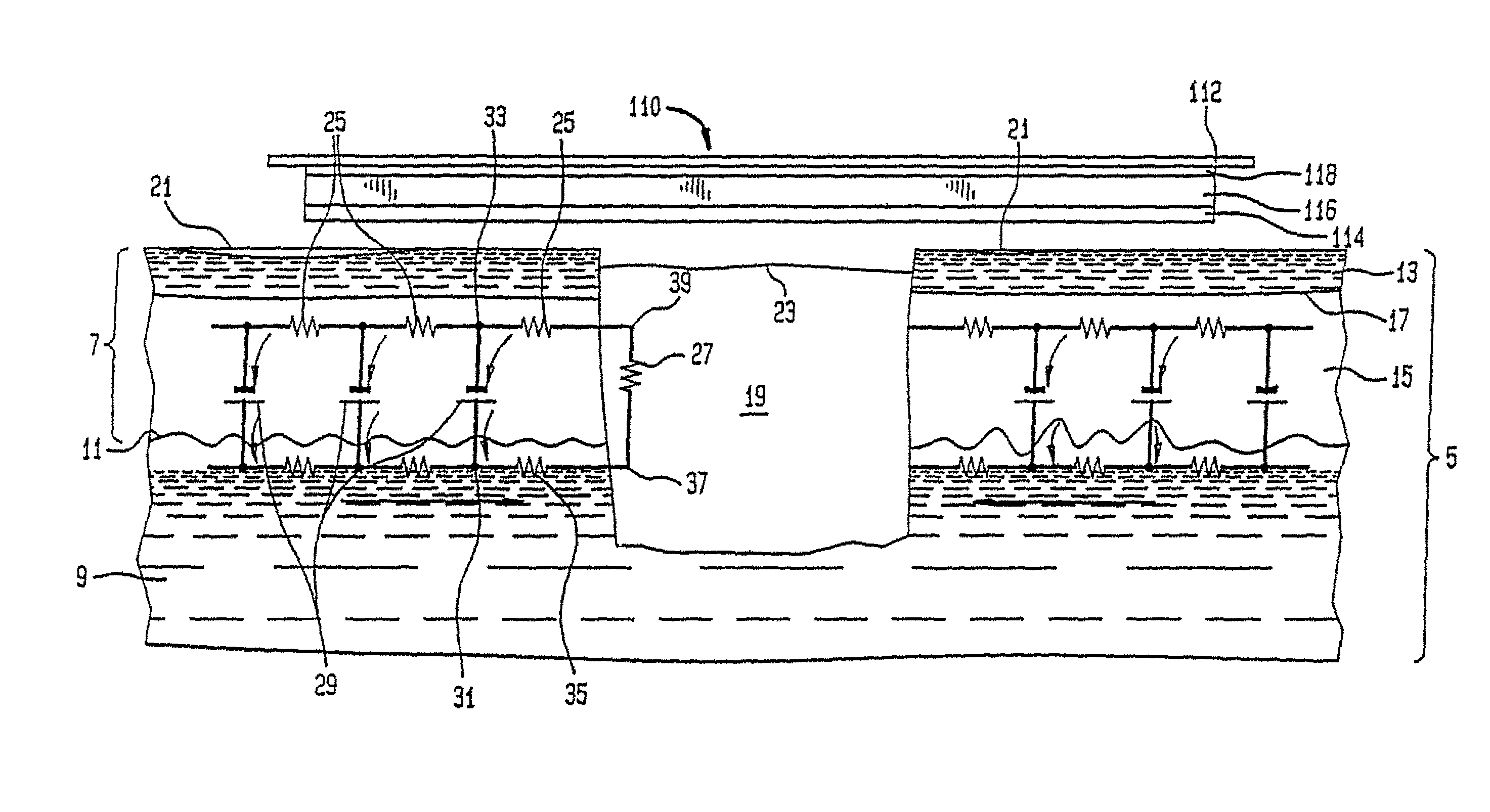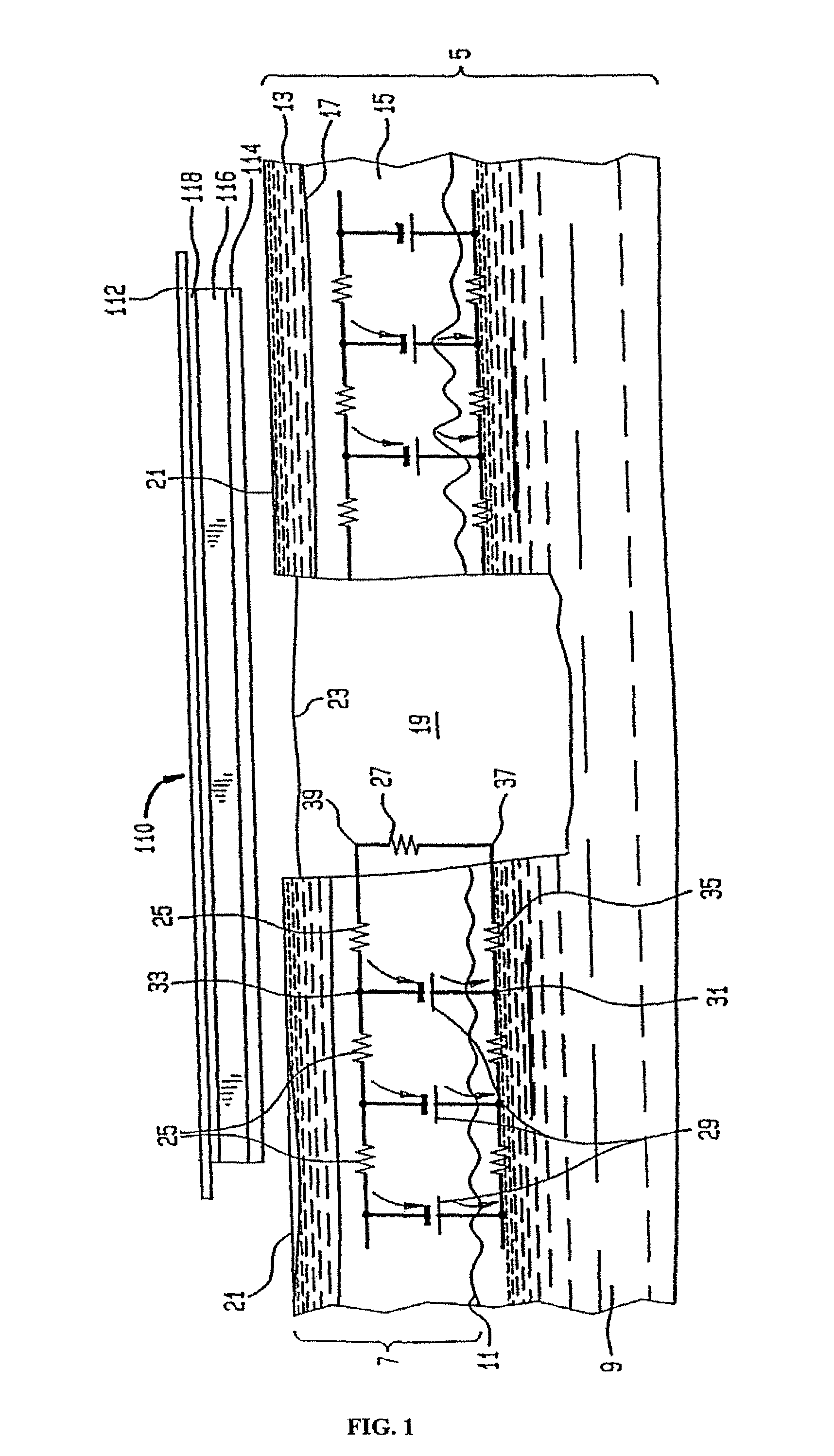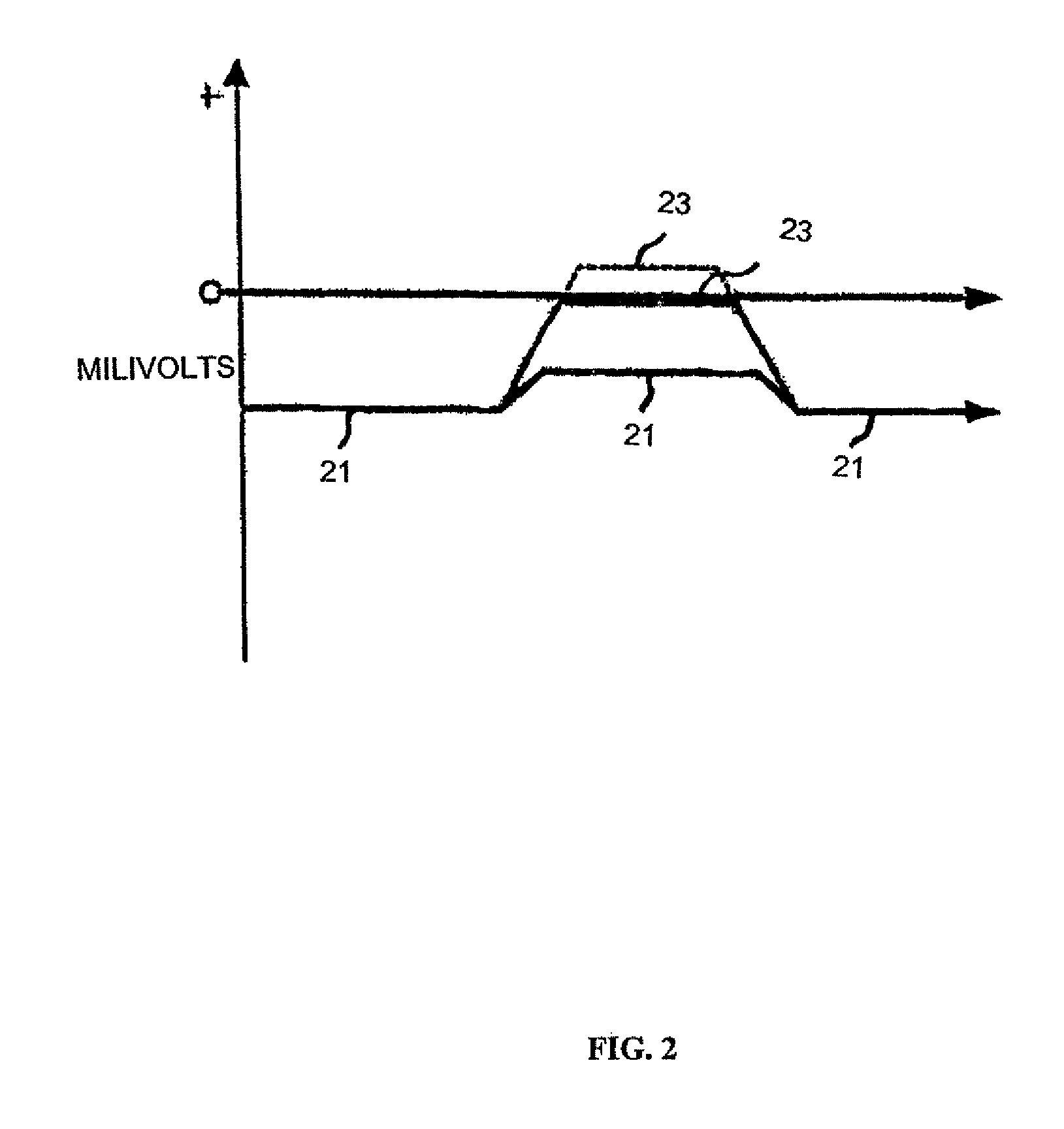Conductive wound dressings and methods of use
a wound dressing and conductive technology, applied in the field of moisture regulation wound dressings, can solve the problems of inability to maintain the moisture level for optimum wound healing, failure of normal healing process, lack of appropriate electrical signals, etc., to reduce the bio-burden of bacteria, reduce pain, and restore the transepithelial skin potential
- Summary
- Abstract
- Description
- Claims
- Application Information
AI Technical Summary
Benefits of technology
Problems solved by technology
Method used
Image
Examples
example 1
[0131]A dressing of the present invention was used to treat a 45 year old male suffering from cutaneous manifestation of “shingles”, Herpes zoster virus unilaterally at the tenth thoracic dermatome measuring 2 inches by 3 inches. The patient applied the multilayer wound pad illustrated in FIG. 4 after moistening the pad with tap water. The dressing was held in place with an adhesive layer and backing sheet Within five minutes, the patient reported 25% reduction in pain and within 2 hours nearly 90% reduction in pain. The patient reported that as the dressing dried out the pain returned, but never returned to the level experienced prior to placement of the dressing. When the dressing was re-moistened with water, the pain level was significantly reduced within ten minutes. The dressing was moistened through the moisture regulation layer without removing the dressing from the cutaneous viral outbreaks. The cutaneous lesions healed within 36 hours after application.
example 2
[0132]A three year old female received 80% total body surface area full thickness (third degree burns) burns secondary to a flame injury. She was taken to surgery shortly after admission and all body surface areas were debrided of necrotic tissue. Integra® synthetic skin was applied and covered with the wound dressing illustrated in FIG. 4. The dressing was changed every two days leaving the synthetic skin in place. Gradually the synthetic skin was surgically excised and meshed split thickness skin graphs were applied. The wound dressing was applied over the meshed split thickness skin graphs, and was changed every two days until the wounds healed. The dressing was moistened every 12 hours with sterile water throughout the course of healing.
example 3
[0133]Table 1 illustrates the release of silver ions. A four inch by four inch square of an autocatalytic electroless silver plated 5.5 ounce per square yard warp knit fabric was incubated in tryptic soy broth at 37° C. The concentration of silver ions was measured by inductively coupled plasma spectroscopy over a twelve day period. FIG. 4 illustrates that the concentration of silver ions increased from less than 10 micrograms / ml the first hour, to over 60 micrograms / ml by day 5. Table 1
[0134]
TABLE 1Time235812Dressing1 Hr2 Hr4 Hr24 HrDayDayDayDayDay4 inch by8.5 μg / ml13.9 μg / ml19.1 μg / ml43.1 μg / ml51.9 μg / ml58.1 μg / ml65.4 μg / ml64.5 μg / ml64.2 μg / ml4 inch5.5 oz / yd2
It is well known that between 3 and 25 micrograms / milliliter of ionic silver are required to kill the most common pathologic wound microorganisms. Results indicated that the effective silver ion concentration was attained in about 1 to about 4 hours.
PUM
| Property | Measurement | Unit |
|---|---|---|
| surface resistance | aaaaa | aaaaa |
| current densities | aaaaa | aaaaa |
| surface area | aaaaa | aaaaa |
Abstract
Description
Claims
Application Information
 Login to View More
Login to View More - R&D
- Intellectual Property
- Life Sciences
- Materials
- Tech Scout
- Unparalleled Data Quality
- Higher Quality Content
- 60% Fewer Hallucinations
Browse by: Latest US Patents, China's latest patents, Technical Efficacy Thesaurus, Application Domain, Technology Topic, Popular Technical Reports.
© 2025 PatSnap. All rights reserved.Legal|Privacy policy|Modern Slavery Act Transparency Statement|Sitemap|About US| Contact US: help@patsnap.com



